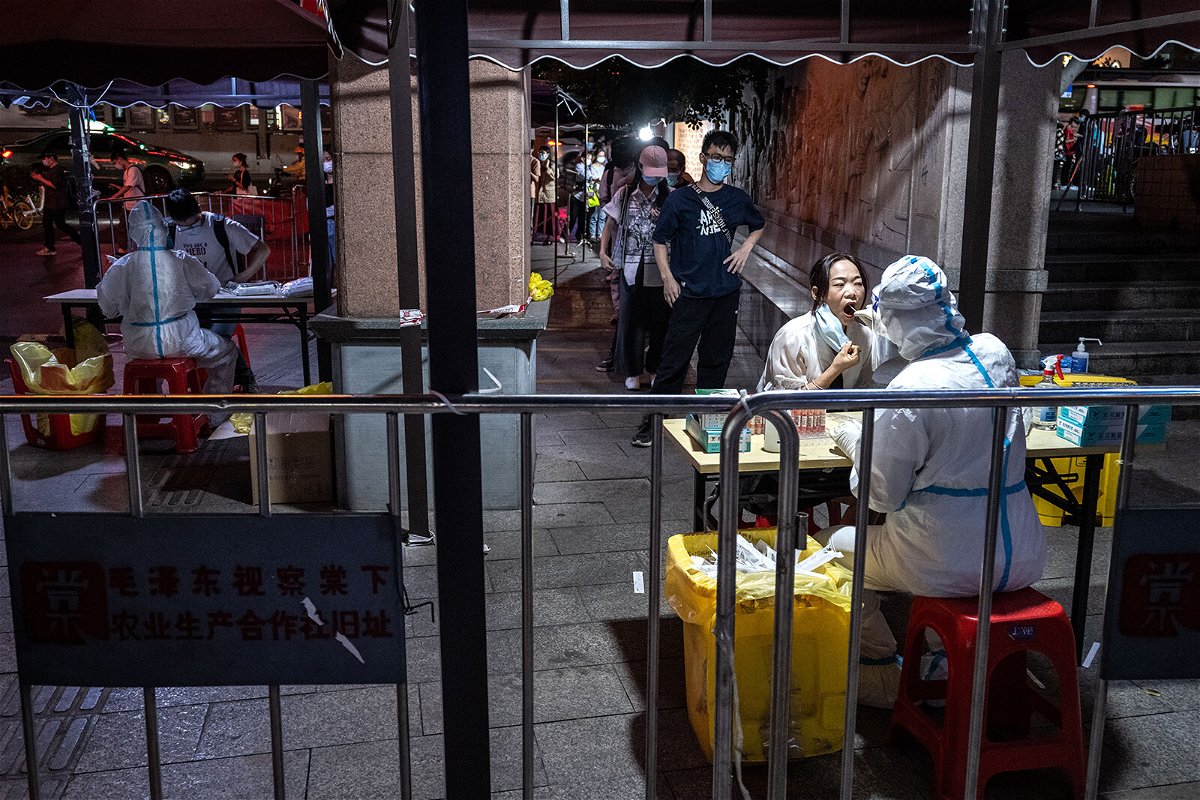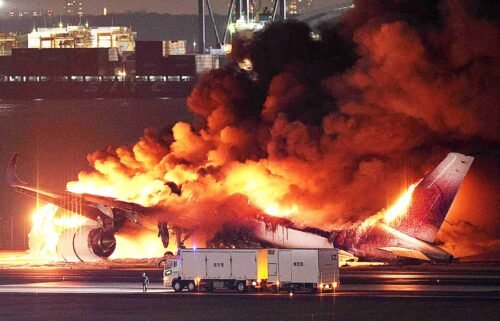No immediate end in sight for China’s costly zero-Covid policy

Residents queue up for Covid-19 tests on October 31 in the southern city of Guangzhou.
By Nectar Gan, CNN
China has reiterated its unswerving commitment to its longstanding zero-Covid policy, despite mounting public frustration the stringent measures are costing the very lives they’re intended to protect.
Unfounded rumors of an exit from the costly strategy had sent Chinese stocks soaring last week, but at a news conference Saturday, Chinese health officials vowed to continue with the country’s zero-tolerance approach that aims to eliminate Covid cases as soon as they flare up.
The unrelenting campaign has kept infections and deaths low at great economic and social cost, as new fast-spreading variants make containing the virus near impossible.
“Practice has proved that our pandemic prevention and control policy and a series of strategic measures are completely correct, and the most economical and effective,” said Hu Xiang, a disease control official, when asked if China would adjust its Covid policies in the near term.
“We should adhere to the principle of putting people and lives first, and the broader strategy of preventing imports from outside and internal rebounds,” Hu said.
The announcement dealt a heavy blow to hopes for an easing of restrictions, fueled by unverified social media rumors that China was forming a high-level committee to pivot away from zero-Covid. Share prices of Chinese companies listed in mainland China, Hong Kong and the US surged last week as investors eagerly seized on any speculation for a possible relaxation.
The pledge to stick with zero-Covid also came as a major disappointment to the Chinese public, many of whom who have grown increasingly weary of the incessant mass testing, centralized quarantine and stringent lockdowns — sometimes lasting for months on end.
Lives lost in lockdown
Public frustration and resentment has only grown in recent weeks, after top leader Xi Jinping began his norm-breaking third term in power with a ringing endorsement of his zero-Covid policy.
Tragic cases perceived to be linked to the policy have gained momentum online as people question why it should continue.
On Friday, a 55-year-old woman fell to her death from the 12th floor from a locked down apartment complex in Hohhot, capital of the northern region of Inner Mongolia. The compound was locked down in late October after two cases were reported, with the entrance to her building fenced in by tall barricades.
In a widely-shared audio message, the woman’s daughter was heard banging on the barricade and crying desperately for help, pleading community workers to unlock the barrier so that she could rush to her mother.
“Open the gate! Open the gate! I’m begging you, please,” she was heard shouting.
In another video, the daughter was seen kneeling and crying by the side of her mother, who lay motionless on the ground, still wearing a face mask.
The desperate scenes triggered a nationwide outcry, with a related hashtag racking up half a billion views on Weibo, China’s Twitter-like platform. The local police said in a statement that the woman, who lived with her 29-year-old daughter, suffered from anxiety disorders.
The woman’s death added to a growing list of lives lost during the country’s draconian lockdowns. In another tragedy that sparked nationwide outrage, a 3-year-old boy died of gas poisoning Wednesday at a locked down compound in the northwestern city of Lanzhou after Covid restrictions delayed rescue efforts.
Experts warned that China could be hit by a new wave of infections — and a new cycle of government enforced lockdowns — as the winter approaches.
China reported 5,496 local infections for Sunday, hitting a six-month high, according to official data.
More than one third of those infections were reported in the southern metropolis of Guangzhou. The city of 19 million people is grappling with its worst outbreak since the start of the pandemic, with large swathes of its Haizhu district placed under lockdown.
At a press conference Sunday, officials accused some residents of spreading the virus by breaking lockdown rules and removing barriers to go out to get daily supplies.
A long way home
Even in places not under extended lockdowns, the constant Covid testing edicts and stringent travel restrictions have fueled growing discontent.
In Beijing, authorities have kept requirements tight for entering the Chinese capital — home to most senior Chinese leaders. The restrictions were further tightened in the lead-up to the Communist Party Congress in October, and they haven’t been relaxed since.
Residents and business travelers have complained about the pop-up window on their Beijing health app that prevents them from returning to the capital, despite their negative Covid test results.
In a telling sign of the extent of public discontent, among those who spoke out against the excessive restrictions were members of the political elite and nationalist influencers. Tao Siliang, the daughter of Tao Zhu, a former member of the Communist Party’s supreme Politburo Standing Committee, criticized Beijing’s travel restrictions after she was barred by the pop-up window from returning home from a trip to eastern Zhejiang province.
“I’ve long been a person with composure, but this time I panicked, because I had the first taste of the sense of loss and helplessness of not being able to return to my own home,” the 81-year-old wrote in a social media article since deleted.
The troubles of returning to Beijing proved even too much for Zhou Xiaoping, a fiercely nationalist, anti-American blogger who was singled out for praise by Xi at a conference on art and literature in 2014. In a series of Weibo posts, he openly questioned the far reaching travel restrictions and criticized propaganda efforts exaggerating Covid deaths overseas.
“What on earth is the meaning of doing this?” he wrote in a post that was later removed. “The cost of epidemic prevention is not only the economic cost, there are also costs to our livelihoods and lives. Since (you vowed to) put the people first, you have to seek truths from facts.”
The-CNN-Wire
™ & © 2022 Cable News Network, Inc., a Warner Bros. Discovery Company. All rights reserved.
CNN’s Mengchen Zhang contributed to reporting.




